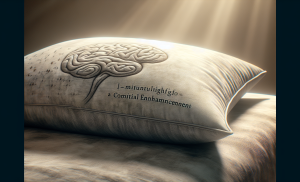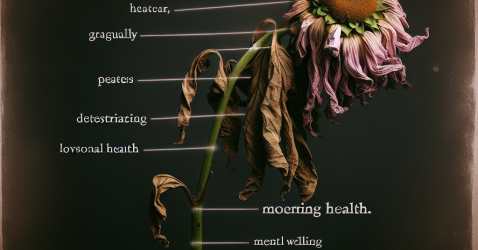How Can Conflict Resolution Skills Reduce Stress In Personal Relationships?
In today’s fast-paced world, personal relationships can sometimes bring unexpected challenges and conflicts. But fear not, because the good news is that conflict resolution skills can greatly reduce stress and help maintain healthy relationships. By actively listening, expressing your feelings in a calm and respectful manner, and finding collaborative solutions, you can effectively navigate conflicts and create a more harmonious and stress-free environment for both parties involved. So, why let stress weigh you down when conflict resolution skills can empower you to build stronger and more fulfilling personal relationships?

Understanding the Importance of Conflict Resolution
Conflict resolution is a vital skill that everyone should possess, especially in personal relationships. It is the process of finding a peaceful resolution to a disagreement or an argument. In any relationship, conflicts are bound to arise, and if left unresolved, they can have a significant impact on the dynamics and well-being of those involved. Understanding the importance of conflict resolution is crucial to maintaining healthy relationships and reducing stress.
Defining conflict resolution
Conflict resolution involves addressing conflicts and working towards a mutually agreeable solution. It requires effective communication, empathy, and negotiation skills. Conflict resolution does not mean avoiding conflicts altogether but rather finding constructive ways to navigate through them. It is about focusing on the issue at hand rather than engaging in personal attacks or blame. When conflicts are approached in a respectful and collaborative manner, it can lead to stronger relationships and reduced stress.
The impact of unresolved conflicts on personal relationships
Unresolved conflicts can have a detrimental impact on personal relationships. They can cause increased stress, tension, and even resentment between individuals. When conflicts are left unresolved, they tend to escalate, creating a toxic environment. This can lead to a breakdown in communication, emotional disconnection, and a lack of trust within the relationship. Unresolved conflicts may also result in repeated arguments or a cycle of unresolved issues, which can cause long-term damage. Developing conflict resolution skills is vital to prevent these negative consequences and promote healthier, happier relationships.
Recognizing and Managing Emotions
Emotions play a significant role in conflicts, and understanding how to identify and address them is crucial for effective conflict resolution.
Identifying and addressing emotions in conflicts
Conflicts often evoke strong emotions, such as anger, frustration, or sadness. It is important to recognize and acknowledge these emotions both within yourself and in the other person involved in the conflict. By understanding and addressing these emotions, you can create a calmer and more conducive environment for resolving the conflict. It is essential to express your feelings in a constructive manner, using “I” statements to avoid blaming or attacking the other person. Emotions should be acknowledged and validated, allowing for a more open and honest conversation.
Practicing emotional regulation techniques
Emotional regulation is the ability to manage and control your emotions during conflicts. It involves techniques that help you stay calm and composed, even in challenging situations. Deep breathing exercises, taking a break to cool off, or engaging in activities that promote relaxation can all be helpful strategies. It is important to take a step back, assess the situation, and respond in a thoughtful and controlled manner. When both parties are able to regulate their emotions, conflicts can be addressed more effectively, leading to less stress and tension in the relationship.
Improving Communication
Effective communication is the cornerstone of conflict resolution. It involves active listening, expressing needs and concerns, and fostering understanding between both parties.
Active listening skills
Active listening is a crucial component of effective communication. It involves being fully present and engaged in the conversation, focusing on understanding the other person’s perspective. This means giving your undivided attention, maintaining eye contact, and acknowledging what the other person is saying. It also involves asking clarifying questions and paraphrasing to ensure that you have understood their message correctly. Active listening helps create a safe and respectful space for open dialogue, reducing misunderstandings and increasing the chances of reaching a resolution.
Expressing needs and concerns effectively
Effectively expressing your needs and concerns allows the other person to understand your perspective, fostering empathy and understanding. Clearly communicating what is important to you and how the conflict is affecting you can help the other person gain insight into your experiences. Using “I” statements instead of accusatory language can minimize defensiveness and create a more collaborative atmosphere. It is important to express yourself assertively but respectfully, ensuring that your message is received in a non-threatening manner. Effective communication of needs and concerns sets the stage for finding common ground and working towards a resolution.
Developing Empathy and Understanding
Empathy and understanding are essential for resolving conflicts and strengthening personal relationships. It involves putting yourself in the other person’s shoes and gaining a deeper understanding of each other’s perspectives.
Putting yourself in the other person’s shoes
Practicing empathy means attempting to understand the feelings and experiences of the other person involved in the conflict. It involves imagining yourself in their situation and seeing things from their point of view. By doing so, you can develop a deeper understanding of their needs and motivations, fostering compassion and empathy. This understanding can help bridge the gap between both parties, creating an environment of mutual understanding and respect.
Developing a deeper understanding of each other’s perspectives
To resolve conflicts effectively, it is important to explore and discuss each other’s perspectives openly. This involves actively seeking to understand the reasons behind the other person’s actions, beliefs, and feelings. It may require asking questions, listening attentively, and being open to different viewpoints. By developing a deeper understanding of each other’s perspectives, you can find common ground and work towards solutions that accommodate both parties’ needs. This promotes a more harmonious and stress-free relationship.

Negotiating for Win-Win Solutions
Negotiation is an important skill in conflict resolution as it allows both parties to come to a mutually beneficial agreement.
Understanding the principles of principled negotiation
Principled negotiation, also known as win-win negotiation, is an approach that emphasizes cooperation and mutual benefit. It involves focusing on interests rather than positions and exploring creative solutions that meet the needs of both parties. This approach aims to find solutions that are fair and satisfy the underlying interests of everyone involved. Understanding and applying the principles of principled negotiation can lead to more effective and sustainable resolutions.
Finding mutually beneficial outcomes
The goal of a successful negotiation is to find outcomes that satisfy the needs and interests of both parties involved. This requires open communication, brainstorming potential solutions, and being willing to compromise. By exploring different possibilities and seeking common ground, it is possible to reach solutions that address the concerns of both parties. Finding mutually beneficial outcomes not only resolves the conflict but also fosters a sense of collaboration and cooperation, reducing stress and promoting relationship harmony.
Resolving Conflict Constructively
Resolving conflicts constructively involves focusing on the issues at hand, avoiding personal attacks or blame, and finding common ground.
Avoiding personal attacks and blame
Constructive conflict resolution requires focusing on the issues rather than attacking or blaming the other person. It is important to approach conflicts with a sense of respect and willingness to address the problem together. Instead of attacking the other person’s character, it is helpful to focus on the behavior or action that is causing the conflict. By refraining from personal attacks and blame, a safe environment is created, allowing for productive discussions and effective resolution.
Focusing on the issue at hand and finding common ground
In conflicts, it is easy to get caught up in emotions and lose sight of the main issue. Resolving conflicts constructively involves identifying the core problem and actively working towards finding a solution. This requires staying focused on the issue at hand, addressing any underlying concerns, and looking for areas of common ground. By collaboratively working towards a resolution, conflicts can be resolved more effectively, reducing stress and maintaining the strength of the relationship.

Building and Maintaining Trust
Trust is an integral part of any relationship. Building and maintaining trust is essential for resolving conflicts and reducing stress.
Rebuilding trust after conflicts
Conflicts can sometimes erode trust between individuals. It is important to engage in trust-building exercises after a conflict to restore and strengthen the relationship. This may involve open and honest communication, accountability for one’s actions, and consistent demonstration of reliability and integrity. Rebuilding trust requires patience, forgiveness, and a commitment to working through the conflict together. By actively addressing the trust issues and taking steps to rebuild it, relationships can become stronger and more resilient.
Establishing open and honest communication
Open and honest communication is a key component of building and maintaining trust in relationships. This involves being transparent, sharing thoughts and feelings freely, and being receptive to feedback. By fostering a safe and open environment for communication, trust can flourish. When conflicts arise, it is important to maintain this open communication, expressing concerns honestly and actively listening to the other person’s perspective. Establishing open and honest communication helps prevent misunderstandings, promotes trust, and reduces stress in personal relationships.
Setting Boundaries and Managing Expectations
Setting boundaries and managing expectations is vital for maintaining healthy relationships and avoiding unnecessary conflicts.
Establishing clear boundaries in relationships
Boundaries are essential to define the limits and expectations within a relationship. Clear and mutual understanding of these boundaries helps prevent conflicts from arising in the first place. It is important to openly discuss and establish boundaries regarding personal space, communication preferences, and individual needs. By setting and respecting these boundaries, relationships can be nurtured and conflicts can be minimized.
Managing and addressing unrealistic expectations
Unrealistic expectations can lead to disappointment, frustration, and conflicts within relationships. It is essential to identify and address these expectations early on. Communication plays a key role in managing expectations, as it allows for open and honest conversations about what is feasible and realistic. By managing and adjusting expectations, individuals can approach their relationships with a practical outlook, reducing stress and promoting healthier interactions.
Seeking Mediation or Professional Help
In certain situations, seeking mediation or professional help can be beneficial to resolve conflicts and improve personal relationships.
When to consider mediation or counseling
When conflicts become difficult to resolve or there is a continuous pattern of unresolved conflicts, it may be beneficial to seek mediation or professional help. Mediation involves the presence of a neutral third party who facilitates communication and helps find solutions. Counseling provides a safe space to discuss issues, gain new insights, and learn effective conflict resolution strategies. If conflicts are causing distress, a breakdown in communication, or an inability to reach a resolution, seeking mediation or counseling can offer valuable support.
Benefits of seeking professional guidance
Engaging in mediation or seeking professional counseling can have several benefits. A neutral mediator or counselor can provide an unbiased perspective and help facilitate open and productive communication. They can help individuals gain a deeper understanding of their own and the other person’s perspectives, promoting empathy and understanding. Professional guidance can equip individuals with new tools and strategies for resolving conflicts effectively, ultimately reducing stress and improving relationships.
Taking Responsibility and Apologizing
Taking responsibility for one’s actions and offering a sincere apology is an important step in resolving conflicts and repairing relationships.
Accepting individual responsibility for actions
Taking responsibility for one’s actions means acknowledging the role you played in the conflict. It involves recognizing any mistakes, owning up to them, and being accountable for the consequences. Accepting individual responsibility demonstrates maturity, honesty, and a genuine desire to resolve the conflict. By doing so, it paves the way for a more open and productive dialogues, making it easier to find a resolution and rebuild the relationship.
Apologizing sincerely and making amends
A sincere apology goes a long way in resolving conflicts and rebuilding trust. It involves acknowledging the hurt or harm caused, expressing genuine remorse, and offering to make amends or find a solution. A heartfelt apology demonstrates empathy, validation, and a commitment to repairing the relationship. By making amends, whether through actions or gestures, individuals can actively work towards healing the conflict and moving forward in a positive way.
In conclusion, conflict resolution skills are essential for reducing stress and maintaining healthy personal relationships. By understanding the importance of conflict resolution, recognizing and managing emotions, improving communication, developing empathy and understanding, negotiating for win-win solutions, resolving conflict constructively, building and maintaining trust, setting boundaries and managing expectations, seeking mediation or professional help when necessary, and taking responsibility and apologizing, individuals can foster healthier, happier, and more harmonious relationships. Conflict resolution is an ongoing process that requires practice and commitment, but the rewards of reduced stress and stronger connections make it well worth the effort.

















